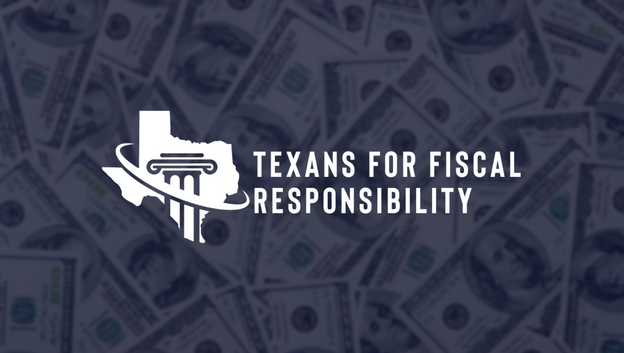
On Thursday, both the Texas House Appropriations and Ways and Means Committees held interim public hearings in preparation for the upcoming legislative session set to begin in January of 2023. Texans for Fiscal Responsibility was there in person to help keep Texas taxpayers informed about issues that affect their wallets.
Some of the issues discussed were property taxes, appraisal reform, corporate welfare, and ongoing and potential future state spending.
House Ways and Means Committee
The House Ways and Means Committee met to go over interim charges and the outcomes of previously passed legislation. These included:
Property Tax Reform
Most of the discussion centered around SB2, the landmark property tax reform bill passed in 2019, which TFR has written extensively about. Most witnesses offered suggestions on small changes to make the law stronger and more clear, but none would significantly change people’s property tax bills.
Suggested changes included: Changing the name of the voter approval rate to better clarify what it is, language that is similar to the new bond language stipulating if a specific rate is an increase in taxes, requiring efficiency audits on cities that trigger voter elections over the voter approval rate, and making the voter approval rate for cities and ISDs the same at 2.5%. Most of these suggested changes are insignificant, but many witnesses did demand real property tax relief.
Appraisal Reform
There were many witnesses who talked about the problems with the appraisal system. One of the best points made was that the way we tax home values is akin to being taxed on unrealized gains. This is true, as many taxpayers have hundreds of thousands in equity that may not be realized for years, but they have to pay perpetual taxes on them regardless. Most suggestions on appraisal reform revolved around more transparency and the ability to hold appraisal boards accountable. TFR did not hear the suggestion to eliminate appraisals altogether in favor of freezing property taxes at the point of the sale value; this would be one of the strongest and best reforms to simplify the system.
Chapter 313 Abatements
Chapter 313 abatements were a hot topic. Many lobbyists supported continuing the program in a different form with more oversight. TFR learned that the House will likely advocate for removing renewable energy companies from approved businesses, but will try to keep the program in place to continue paying corporate welfare to businesses. This is against the wishes of the grassroots and almost every conservative group in Texas, including the Republican and Democrat Party platforms. The mental gymnastics needed to get this one through the next session should be interesting to watch.
House Appropriations Committee
The House Appropriations Committee received an update from various state agencies and programs on how previously passed legislation has impacted their operations, as well as potential needs from a state budgeting perspective for the next fiscal biennium. These topics included:
Space Exploration and the ‘Space Economy’
The committee discussed the possibility of partnerships with the federal and state government, as well as possible private partnerships, to build new space facilities in Texas.
Notably, the possibility of new state subsidies, under the guise of their importance to “economic development,” as well as the potential for Public-Private Partnerships (PPP) could be on the table.
Employee Retirement System of Texas
The Employee Retirement System of Texas (ERS) is essentially the pension fund for state employees. The fund has been in peril for a while and has received multiple legislative Band-Aids to keep it afloat. There have been discussions in the past about doing away with pensions, which are an archaic vehicle for retirements, and moving to a more modern system like that of 401Ks. There seemed to be no talk about that among committee members in the hearing, however. Instead, they discussed potential infusions of money in the form of what is called a “13th check” in legislative vernacular. The “13th check” would offset higher costs of living and inflation. Very little discussion was had to attempt to actually restructure the program to be solvent.
Republican State Rep. Matt Schaefer (Tyler) floated the idea of potentially using an unspecified portion of the projected budget surplus to pay down existing unfunded liabilities in an attempt to ensure future generations of taxpayers would not be on the hook for such things, while also trying to avoid accrued interest. It was generally well received.
Both Schaefer and Republican State Rep. Ed Thompson inquired as to the role that ESG has on the investments the pension systems use. ESG is a “woke” system of control that is moving investments away from fossil fuels and instead into “green energy” companies that support the “woke” agenda.
Teachers Retirement System of Texas
The Teachers Retirement System is another retirement system that is constantly in peril, though it does boast current “actuarial soundness” compared to that of ERS. It has also received many legislative “Band-Aids” over the last few legislative sessions, but there has yet to be any real discussion on reforming the broken system to something more sustainable.
Department of Family and Protective Services
The Department of Family and Protective Services has historically been a troublesome agency as it currently houses Child Protective Services (CPS), among other things. The past few legislative sessions have not resulted in lasting solutions, and the agency still is suffering from a lack of CPS workers that are consistently overwhelmed with caseloads. Today’s focus was on foster care and the possibility of additional investment to assist in the placement of children who are still in the care of the state.
Health and Human Services Commission
The committee focused its line of questions on Medicaid and the current status of the Medicaid-1115 waiver. This is a program that the Legislature has generally tried to avoid because of the strings that come attached from the federal government, though House Democrat lawmakers joined with several House Republican lawmakers in the last session to try to expand the program. Their efforts were unsuccessful. There was also discussion of increasing funding to the Alternatives to Abortion fund to further assist women with unexpected pregnancies in a “post-Roe” Texas.
What Is Next?
Much of the work in preparation for the next legislative session is taking place right now. Concerned taxpayers may contact their state lawmakers.
Texans for Fiscal Responsibility (TFR) has long held that Texas does not have a revenue problem; it has a spending problem. To help address many of the economic challenges facing the state, TFR recently released the Texas Prosperity Plan.
We invite you to read the Texas Prosperity Plan for yourself and voice your support for banning taxpayer-funded lobbying, eliminating the property tax, and freezing state spending by signing up to support the TPP. While you are there, sign up for The Fiscal Note to stay up to date on all fiscal issues that affect Texans, especially our broken property tax system. We CAN put Texas on a path to fiscal sanity and future prosperity if we amplify our voices loudly enough.




